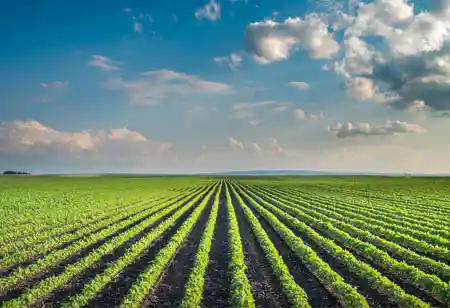

Thank you for Subscribing to Agri Business Review Weekly Brief

The chemical properties of soil are improved by the addition of biochar, including pH, organic carbon, and exchangeable cations
Biochar is a carbonaceous product formed during biomass pyrolysis. This product is then burned and added to soil as an amendment. Pyrolysis is the thermal depolymerization of biomass without the presence of oxygen at high temperatures. In the pyrolysis process, syngas, bio-oil, and char are produced. The char, also known as biochar, functions as a soil amendment and can be used as an energy source. It can be made from various organic materials, such as chicken waste, forestry and crop wastes, and sludge from paper mills. Biochar applications are becoming increasingly popular as a sustainable technology that helps improve worn and deteriorated soils. It improves the soil's physical, chemical, and biological properties, including its bulk density, water-holding capacity, permeability, microbial population, earthworm, and enzyme populations. As a result, plant growth and development are improved. Its resistance to microbial breakdown ensures that soil fertility will be improved over the long run. In addition, it increases the saturated hydraulic conductivity of the topsoil in rice fields and the xylem sap, leading to higher crop yields and a better reaction to treatments with chemical fertilizers N and NP. The risk of contamination is quite low because they contain very little heavy metals or hazardous substances like As, Cd, Pb, and polycyclic aromatic hydrocarbons. They can increase agricultural yield, soil fertility, water, and nutrient usage efficiency and reduce N2O emissions. Long-term carbon storage in the soil can reduce the rising level of atmospheric CO2. Regarding this, biochar has become a practical choice for storing carbon in the soil.Biochar applications are becoming increasingly popular as a sustainable technology that helps improve worn and deteriorated soils.
